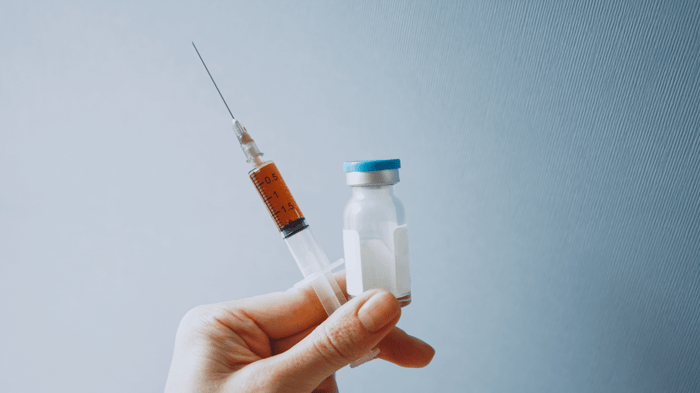
2020 has been defined by COVID-19, the new viral disease that has spread around the globe causing illness, fear and dramatic changes in our daily activities. Back in March there was so much that was unknown. How do we test for it? How do we treat it? Who is vulnerable and how can we protect them?
The last 8+ months have been a race for health authorities, scientists and the general public to learn about the virus and develop strategies, methods and treatments to control and fight it.
Thankfully, significant headway has been made. We know how to identify the most vulnerable and have been working to protect them. The most high-risk groups are those over 65, care-home residents, and anyone with certain pre-existing conditions such as obesity, diabetes, and high blood pressure.
We have learned ways to slow the spread and testing has become widespread. The best news is that treatments and preventatives, including vaccines, have come a long way in a relatively short amount of time. As we are waiting for the vaccines to roll out, it is a great time to get up-to-date on the many treatments that are being used to successfully combat the illness.
This blog post is part one of our two-part series analyzing the developments in treatment and prevention that have been made during the pandemic. The second installment will be an analysis of the different vaccines in development and what Americans need to know about their rollout.
Vitamin D for Prevention
Vitamin D has emerged in many studies this year as a possible preventative to severe COVID infections. Many health authorities are recommending a daily dose of vitamin D of 1000 - 2000IU due to the link between insufficient vitamin D levels and disease severity.
Vitamin D is thought to help against COVID-19 in two ways: by boosting the body's natural defense against viral illnesses and by regulating the immune system to avoid an exaggerated inflammatory response that can progress to Acute Respiratory Distress Syndrome (ARDS).
Can the Sunshine Vitamin Improve COVID-19 Outcomes?
At-home Treatments for COVID-19

Fortunately, the majority of people do not experience severe illness related to COVID-19 and are able to recover at home. Keys for this group are rest, fluids, pain- and fever-reducing medications, and isolating from others, especially those at risk for severe illness. Using a humidifier in your home is also a good idea, since this study found that the Coronavirus spreads easier in dry, indoor air.
Everyone, including people with risk factors, can reduce their likelihood of getting severe illness by strengthening their immune systems with good nutrition, healthy sleep habits, regular exercise, adequate sunshine or vitamin D supplements, and plenty of zinc, selenium, magnesium, vitamin C, and other micronutrients.
Our 4-Supplement Advice for Viral Illnesses
Some doctors have recommended patients should choose acetaminophen (Tylenol) over ibuprofen (Advil) for pain and fever management at home. Early advice from the World Health Organization (WHO) agreed with this recommendation, but the WHO has since reversed and now say it’s fine to take either medication for minor symptoms at home.
Physician Treatments for Early Stages of COVID-19

Various types of treatments are now available from physicians for COVID-19. Some of them work only when given early in the disease progression and others are reserved for late intervention. We step through the most talked-about treatments below.
The following are treatments suitable before symptoms become severe and in non-hospitalized patients.
Monoclonal Antibodies
Monoclonal Antibodies are man-made versions of the antibodies that our bodies make to fight viruses. These specific ones are made to attack the Coronavirus’s spike proteins, damaging the virus’s ability to enter human cells. The FDA has granted emergency use authorization (EUA) for non-hospitalized patients over 12 years of age who are at risk for developing severe illness. The risk group includes those who are over 65, obese, have cardiovascilar disease, diabetes or high blood pressure. There are two different monoclonal treatments available:
- Bamlanivimab made by Eli Lilly is a single-dose treatment given intravenously within the first 10 days of symptoms. This treatment reduced hospitalization risk from 10% down to 3% in trials.
- Another option is a combination therapy consisting of two monoclonal antibodies, Casirivimab and Imdevimab which are made by Regeneron. It’s also given intravenously and was shown to reduce hospitalization from 9% to 3% in trials of high-risk individuals.
Convalescent Plasma
This treatment is made of antibodies from the blood plasma of patients who have recovered from a COVID-19 infection. This type of treatment has been used for more than 100 years for various diseases and is widely considered to be safe. The donor plasma is administered via transfusion and the borrowed antibodies strengthen the patient's immune forces that are fighting the illness, usually reducing severity and speeding recovery.
In trials patients receiving convalescent plasma within 3 days of symptom onset had a reduced chance of death compared to patients who received it later, but there was no control group, so more study is necessary to determine true efficacy. The data that's been gathered so far is from the expanded access program (EAP) at the Mayo Clinic and all eligible patients were given the treatment. The FDA has issued an emergency use authorization for the treatment.
Ivermectin
Ivermectin is a potent anti-parasitic drug that has been around for decades and is now being repurposed in the fight against COVID-19. Physicians who have tried it against COVID-19 say it has amazing anti-viral and anti-inflammatory effects. Passionate clinicians recently presented their research to the Senate Homeland Security Committee as a potential early treatment for COVID-19. Now researchers are asking the National Institutes of Health to review their studies and consider adding Ivermectin to the official protocols for COVID. Their claim is that it can help stop transmission by keeping people from getting sick..
Hydroxychloroquine (HCQ)
This 70-year-old malaria drug has become controversial this year in the context of COVID-19 treatment. It is commonly prescribed to treat rheumatoid arthritis and lupus in the US and is an over-the-counter malaria drug in many countries. The first trial for use treating COVID-19 in April 2020 was stopped early due to suspected heart rhythm and heart damage risks to patients.
Despite the negative trial and press, many doctors have persisted in the use of HCQ for COVID patients, citing its long history of use and well-known safety profile. They say that early treatment is very effective at stopping progression of the virus and that one problem with the trial was using it too late in disease progression.
Practitioners often combine HCQ with azithromycin and zinc when they administer to COVID patients. These treatment protocols are not currently FDA-approved for COVID-19, but are being used off-label or in ongoing trials around the country. HCQ is not appropriate for those with heart problems.
Physician Treatments for Hospitalized Patients

Constantly-improving treatments have reduced mortality for hospitalized patients.
Remdesivir
This is an antiviral from the Gilead group, originally engineered for use against the Ebola and Marburg viruses, but ultimately not effective against them. Trials have suggested a modest speed-up in recovery time for very ill COVID patients--about a 31% shortening of illness time.
While acknowledging its benefits are not dramatic, the FDA approved Remdesivir in October to treat hospitalized COVID patients. It was the first drug approved specifically to treat COVID-19 and it has made a difference for many patients.
IV Vitamin C
A recent study looked at using Vitamin C in large quantities delivered intravenously along with corticosteroids and thiamine to treat severe sepsis. The results in the Vitamin C-treated group showed a dramatically reduced mortality rate of just 8.5% compared to the control group, which had a mortality rate of over 40%. The Vitamin C cocktail prevented the progressive organ failure that often results in cases of sepsis.
Another study looked at intravenous administration of high-dose vitamin C for 96 hours to patients with sepsis and Acute Respiratory Distress Syndrome (ARDS). Results showed the Vitamin C infusion group had reduced mortality at 28 days with reduced hospital and ICU time, as well. Sepsis and ARDS are the most common conditions leading to ICU admission, ventilator support, and death among those with severe COVID-19 infections.
Studies of Vitamin C infusions specifically for COVID-19 patients are ongoing, but many doctors have been using it already and reporting some success.
Dexamethasone
Corticosteroid drugs like Dexamethasone are potent anti-inflammatory drugs that have proven useful in the treatment of severely ill COVID-19 patients. They should not be given early in the illness, since they can blunt the immune response.
They can be incredibly helpful in later, severe illness where the immune system has spiked into a cytokine storm with possible ARDS. Dexamethasone can stop the immune system's overreaction and stop damage to the lungs and other organs. Clinical studies are in progress, but since these drugs are common, inexpensive and well understood, many doctors are using them in the COVID battle with success.
Ventilator
Mechanical breathing help is necessary for some hospitalized COVID patients who are having extreme difficulty breathing; usually combined with supplemental oxygen. Last spring when no treatment options were available ventilators were being required very frequently.
While being life-saving in many cases, they are not without risks, especially in elderly patients. Thankfully ventilators are being required less frequently this winter, since other treatment options are now available to intervene at earlier stages of disease.
We should stop and celebrate the progress made in treating Coronavirus infections by the physicians on the frontlines. They have been developing effective protocols with old and new drugs by thinking outside the box and learning about the virus in record time. Even though the virus is still out there, we can be a little less afraid with the knowledge that doctors can help.
Watch for our next article which will dive into the differences between the coronavirus vaccines and weigh the pros and cons of each one.

.JPG)


